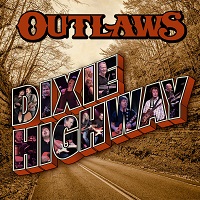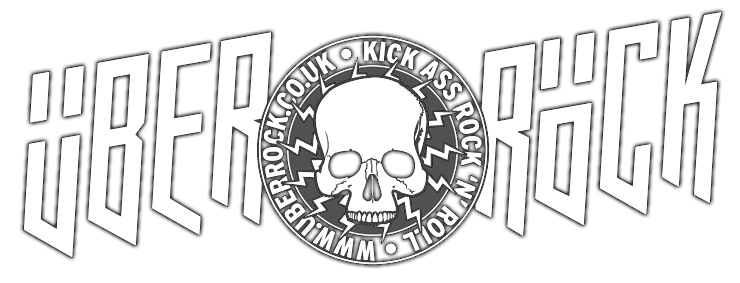By DJ Monk
 We’ll start this review with a history lesson, shall we? The Dixie Highway originally connected Chicago to Miami – the first vital thoroughfare between the Midwest and the South – before eventually being replaced in the late 1920s by the US Highway system. And while fragments of the original road still exist in Florida, Georgia, Tennessee and Ohio, it remains a route that carries echoes of its past as well as being an enduring symbol of American discovery, fortitude and pride. And it is this once well-trodden road which southern rock vets the Outlaws have chosen as the theme for this, their 13th studio album in their 45+ year career.
We’ll start this review with a history lesson, shall we? The Dixie Highway originally connected Chicago to Miami – the first vital thoroughfare between the Midwest and the South – before eventually being replaced in the late 1920s by the US Highway system. And while fragments of the original road still exist in Florida, Georgia, Tennessee and Ohio, it remains a route that carries echoes of its past as well as being an enduring symbol of American discovery, fortitude and pride. And it is this once well-trodden road which southern rock vets the Outlaws have chosen as the theme for this, their 13th studio album in their 45+ year career.
“It’s a metaphor for the journey as much it is the destination,” says Outlaws co-founder Henry Paul. “It’s certainly the reflection of a life on the road, especially in a Southern Rock band. Our fans want to know about our relationships with our contemporaries; how we interacted onstage, backstage and on the bus rides. This album absolutely speaks to the route we’ve travelled. And at the same time, it stands on the edge of tomorrow.” Well, I’m not sure about the latter assertion, but this album definitely does speak for the experience which Paul and his current band of Outlaws (only drummer Monty Yoho remains from the original line-up) bring to the table – or should that be the studio?
The album kicks off with the declarative yet retrospective ‘Southern Rock Will Never Die’, which is not so much as call-to-arms but a reminiscence and tribute to fallen brothers from the past five decades, referencing as it does Lynyrd Skynyrd’s Ronnie Van Zant and Steve Gaines, Marshall Tucker’s Toy and Tommy Caldwell, Duane and Greg Allman, and The Charlie Daniels Band’s ‘Taz’ DiGregorio and Tommy ‘TC’ Crain, as well as Outlaws’ co-founders Billy Jones, Frank O’Keefe and Hughie Thomasson. It’s apt introduction to the album, as a sense of mournfulness and remembrance permeates its grooves, alongside one of celebration of the legacy which those referenced, and others, have left for the modern generation.
And this is these two senses which are captured in two of the album’s key moments – a re-recording of ‘Heavenly Blues’ from their iconic 1977 ‘Hurry Sundown’ album, and ‘Windy City’s Blue’, based on a 1972 demo written by original bassist Frank O’Keefe about his native Chicago, bringing the album historically and thematically full circle.
‘Dixie Highway’ doesn’t deliver any surprises: but, then, you wouldn’t expect it to. It is an album that will satisfy diehard fans on every level, from their trademark three-part guitar and vocal harmonies through Paul’s ever incisive lyrics. And with the current renaissance of country/southern rock and a renewed interest in the genre, thanks to upstarts such as Black Stone Cherry and Rival Sons, the solo explorations by the likes of Chris Shiflett and Danny Worsnopp, alongside the profile being given to the genre through festivals such as Ramblin’ Man and HRH CROWS, it should equally bring them to the attention of a new generation of keen listeners.
As Henry Paul himself says of it: “I want the fans to see the band’s growth, to recognize the quality of the music. It’s focused on where we come from, where we’re headed and how much fun we’re still having on the ride. We wrote and recorded this album to reinforce the notion that the Outlaws still matter.” On the basis of this set of songs, the Outlaws’ won’t be ending their ‘Endless Ride’ along that ‘Rattlesnake Road’ any time soon.
‘Dixie Highway’ is out now. You can get your copy HERE.
https://www.facebook.com/outlawsmusic/
- All content © Über Rock. Not to be reproduced in part or in whole without the express written permission of Über Rock.
